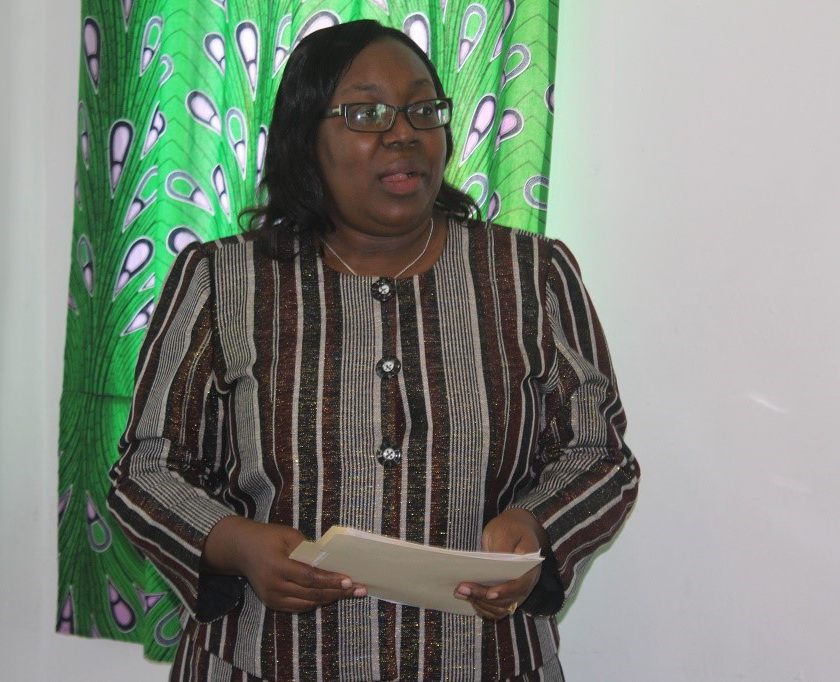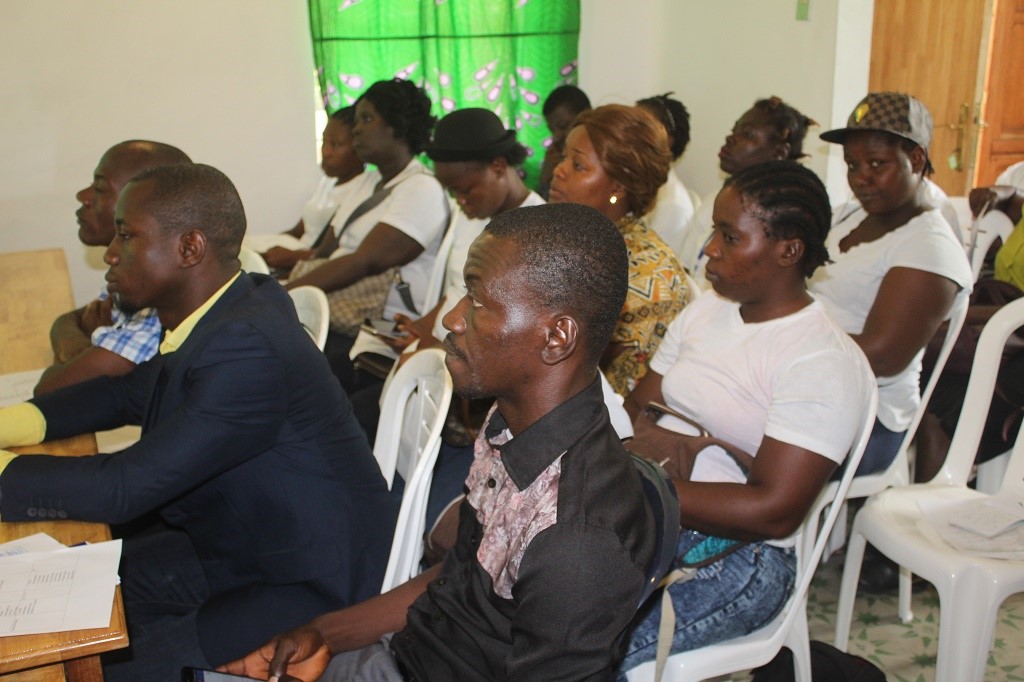-As PaSD launches Action plan for Sexual Reproductive Health
By David S. Menjor
A local not for profit organization has launched an action plan to create awareness and engage relevant stakeholders on the need to prioritize the promotion of reproductive health rights (SHR) in Liberia, amidst the alarming maternal and infant mortality rate.
The group, Partnership for Sustainable Development (PaSD) recently launched a project known as Action for Accelerating SHR Rights and Policy Implementation (AASPI) in Monrovia.
It was launched in Monrovia recently with a host of representatives from civil society organizations (CSOs), the student community and health practitioners.
Keynote speaker Assistant Health Minister for Curative Services, Dr. Catherine Cooper said with the numerous challenges confronting the Ministry (MOH), it is a laudable initiative that CSOs get involved in helping to curb most of the challenges.
“MOH cannot do it all alone. We need civil society organizations and a lot of other partners to appreciate the fact that health matters are matters of urgency and completely void of politics,” Dr. Cooper said.

She said the maternal and infant mortality rates in the country are too alarming and, there is the need for prompt action at all levels to curtail or put an end to them.
“We have a high fertility rate of 4.7 percent of our infant mortality rate. This means that the infant mortality ratio now is 54 to 1,000 lives birthed. The newborn mortality is 26 to a 1000 lives birthed as well,” Dr. Cooper added.
She said most of the maternal and newborn deaths can be attributed to preventable and treatable conditions.
“It is evident that without quality health for women and children the country will not yield the demographic dividend. There are many hindrances to the quality of health services in Liberia and we find out that predominantly we are more troubled on the supply side,” Dr. Cooper said.
The Assistant Health Minister for Curative Services pointed out that there are critical gaps in the health system which include the unavailability of essential drugs, equipment, medical supplies at the various health facilities across the country.
“We have a weak distribution system. We have limited trained workforce to intervene in this area. The access to health care is further hindered by no service quality and inequality of the distribution of health facilities. There are still many counties where our population does not have access to health care,” she said.
About government’s efforts to curtail some of the challenges in the health sector, Dr. Cooper said in 2016 the MOH developed a reproductive maternal newborn child and adolescent health investment case (RMNCH).
According to her, this is a national strategy for improving reproductive maternal newborn and child and adolescent health issues in the country and it is a direct response to one of the sustainable development goals that have been promoted by the United Nations.
She added that since 2016, the Liberian government has made several strides towards achieving RMNCH.
“There is an improvement of service provision in many of the health care facilities. Service is now being taken to the communities. We now have community health assistance program. Community health workers are recruited and are going around finding out cases and informing the MOH for quick intervention,” she said.
Dr. Cooper said the government is reviewing the reasons that are causing the deaths and at the same time find the means to reduce or prevent the deaths of parents at childbirth or their infants.
“There is a new Redemption Hospital undergoing construction in Caldwell. When completed, there will be more facilities to cater to patients, mainly our women and children who suffer the most in times of health crisis,” she said.
Cooper added that for the power outages experienced at health care facilities across the country, the MOH has provided suitcases with solar lights for midwives to attend to pregnant women. She said over 274 of those solar panels have been installed at health facilities.
Eight maternal waiting homes have been constructed in seven of the fifteen counties. Pregnant women who live far away from health facilities can now come to these maternal waiting homes before their delivery.
“Holding factors constant that traditional practices are hampering the MOH’s intervention in many cases, such as women making sure they are delivered of their babies at health care centers rather than at home there is an increment by 32 percent in pregnant women being delivered at health care centers as compared to before the percentage was far lower than the 32 percent,” Dr. Cooper said.
According to the Assistant Health Minister, there are two rural midwives schools now in Grand Gedeh and Lofa that are already training midwives in those rural parts of the country for prompt intervention in the delivery of women instead of unprofessional people attending to them.
About the history of PaSD and an overview of the AASPI, PaSD acting national executive director, David P. Flomo said his organization’s thematic areas of focus are the campaign against gender-based violence, women’s access to comprehensive and reproductive health services and sexual health of young girls.
Mr. Flomo also outlined challenging stigma, discrimination, attitudes, and laws as another set of thematic areas of focus. Meanwhile, PaSD executives sought partnership with civil society organizations present in adopting and presenting a petition to the 54th Legislature to pass into law “The Domestic Violence Act.”
The Domestic Violence Act was introduced by a consortium of civil society organizations under former President Ellen Johnson Sirleaf’s regime.
PaSD and all who affixed their signatures to the petition also called on President George Weah to see reason and reintroduce Executive Order 92.
Executive Order 92 was introduced by former President Ellen Johnson-Sirleaf in an effort to curtail or eliminate violence against women at all fronts.
“Civil society organizations, including youth and women groups championing an end to sexual-gender based violence (SGBV), infant and maternal mortality were particularly moved and applauded by President Weah’s call for the 54th Legislature to pass into law several essential bills, especially the domestic violence act,” the petition said.
The CSOs called on Speaker Bhofal Chambers and Senate Pro Tempore Albert Chie to fast-track proceedings leading to the passage of the Domestic Violence Act.
Signatories to the 13th February 2019 petition were PaSD, National Budget and Human Rights Forum (NBHF), Institute for Research and Democratic Development (IREDD), Save the Children International (SCI) and More for Education (ME).
Others are CSOs of maternal newborn child advocacy working group, Liberia CSOs WASH Network, Midwives Association of Liberia and United Youth for Peace, Education, Transparency and Development in Liberia.
Also, signatories to the document were the African Methodist Episcopal Zion University (AMEZU), the University of Liberia and the Federation of Liberian Youths (FLY).

